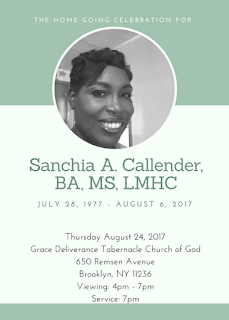Disability, Discipline, Restraint
I was going to do an extensive write up about several stories on NPR this about individuals with learning disabilities and/or mental illnesses and the beating (figurative and literal) they often take at the hands of authority figures who are supposed to help and protect them (teachers, law enforcement officers, etc.). However, reading the comments on the first story in the list below really soured my stomach on the topic. I'd like to say that I'm surprised to see so much anger and hostility displayed towards individuals with learning disabilities and/or mental illness and their families but I'm not.
Here's a thought to chew on for anyone who might be disgruntled that students with learning disabilities, mental illnesses, or behaviour problems may be in classrooms with "normal" students. This isn't a case of coddling a few problem students at the expense of others. Teaching students to manage "problem" behaviours is equipping them to learn and fulfill their potential. Avoiding situations that lead to "problem" behaviours creates a situation more conducive to learning for all students. Finally, is it really fair to dump on special education students when it is already clear that public schools regularly fail to educate regular education students?
The following two stories, one encouraging and uplifting the other not so much, also caught my interest this week. They may get their own posts at some point. For now I will say two things. First one of my goals as a parent is that none of my children grow up to tell a story like Mr. Greenfeld's. Second is a bit of advice for any of you who are dealing with disability or mental illness, do not let yourself be over come by anger and despair. Easier said than done I know but anger and despair will eat away your soul, steal any joy there is to be had, and leave you unprepared for the challenges you face.
Here's a thought to chew on for anyone who might be disgruntled that students with learning disabilities, mental illnesses, or behaviour problems may be in classrooms with "normal" students. This isn't a case of coddling a few problem students at the expense of others. Teaching students to manage "problem" behaviours is equipping them to learn and fulfill their potential. Avoiding situations that lead to "problem" behaviours creates a situation more conducive to learning for all students. Finally, is it really fair to dump on special education students when it is already clear that public schools regularly fail to educate regular education students?
Report: Discipline Methods Endanger Disabled Kids
by Joseph Shapiro
Morning Edition, May 19, 2009 · A large number of schools use potentially dangerous methods to discipline children, particularly those with disabilities in special education classes, a report from Congress' investigative arm finds.
In some cases, the Government Accountability Office report notes, children have died or been injured when they have been tied, taped, handcuffed or pinned down by adults or locked in secluded rooms, often to be left for hours at a time.
********
Training Police To Handle Mental Illness Cases
by Joanne Silberner
Morning Edition, May 21, 2009 · In 1987, a Memphis, Tenn., police officer shot and killed a mentally ill man who was cutting himself and threatening others. The incident inspired training programs to help police handle these tricky situations. Those programs are catching on.
********
Schools Using Dangerous Discipline Methods
Talk of the Nation, May 21, 2009 · Handcuffs, tape and isolation are tools used on children with behavioral disorders in some classrooms. Restraint and isolation techniques are sometimes necessary to prevent students from harming themselves and others. But some educators argue for emphasizing prevention.
The following two stories, one encouraging and uplifting the other not so much, also caught my interest this week. They may get their own posts at some point. For now I will say two things. First one of my goals as a parent is that none of my children grow up to tell a story like Mr. Greenfeld's. Second is a bit of advice for any of you who are dealing with disability or mental illness, do not let yourself be over come by anger and despair. Easier said than done I know but anger and despair will eat away your soul, steal any joy there is to be had, and leave you unprepared for the challenges you face.
A Brother Recalls Life In the Shadow Of Autism
The audio version of this story contains footage provided by CBS' 60 Minutes.
All Things Considered, May 18, 2009 · Journalist Karl Taro Greenfeld has lived in the shadow of autism his whole life. He does not suffer from the disease, but his only brother, Noah, is severely autistic, a fact of life that has penetrated every aspect of the Greenfeld family.
In his new memoir Boy Alone, Greenfeld recounts his experiences growing up in the shadow of his brother's condition. As he tells Michele Norris, "when you have a developmentally disabled person in your family ... the gravity of the family is tilted disproportionately toward that person. In my family, Noah became the center of everything."
********
Disability Sometimes A Difficult Lesson
Tell Me More, May 19, 2009 · Teaching kids to accept and respect differences is an ongoing challenge for many parents, especially when it comes to approaching people's disabilities. Jeannette Betancourt, Vice President for Outreach and Educational Practices at Sesame Workshop, shares insights about teaching acceptance. David Gorman, Executive Director for Disabled American Veterans, and freelance journalist William Scheltema share what they have learned from living with disability.


Comments
Post a Comment